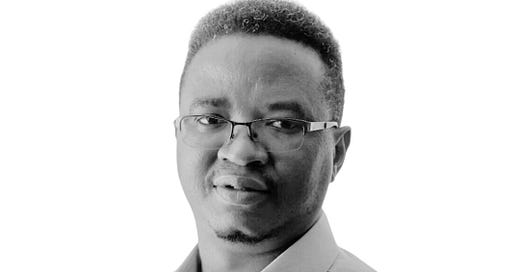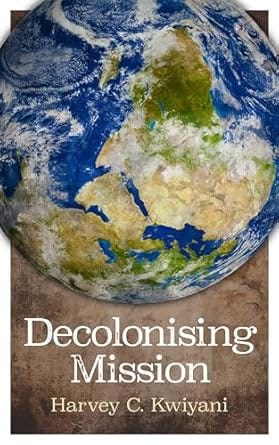This is the third in my three-piece response to Ted Esler’s engagement with a short newsletter that I published on 11 March entitled “We Have A New Constantine: How Will Mission Change?” In my first response, US Imperialism, Evangelicalism, and Christian Mission, I argued that to many of us around the world, contrary to Ted’s proposal, the US behaves like an empire and that this imperialism shapes a great deal of US Evangelical mission theology and practice. I join many others in the “decolonising” discourse wondering whether US Evangelicalism provides the software—the theological and philosophical underpinnings—of the US Empire. Christian theology has been used in this way, right from Constantine. It was a Kenyan theologian, Teresia Hinga, who once suggested US missionaries often behave like “a bull in a China shop.” The events going on today clearly show why mission and empire cannot become one.
In my second response, Missio Sine Imperiis, I sought to paint a picture of what mission would look like if it was done without identifying with an empire. I am deeply aware that this is quite a radical shift because for many of us in the Evangelical world, whether we realise it or not, mission is colonial in nature—success only happens when our converts begin to believe and behave like us. This is not only a Western issue. Here in Europe, I see many African and Asian Pentecostals trying hard to make Europeans believe and behave like them. The pud culture in the UK is an easy target. They often say, “Once you become a Christian, you have to stop going to the pub and start coming to our prayer vigils.”
Jesus or Caesar
In this third and final piece (for now), I want to pick up my original argument to further suggest that, today, in the twenty-first century, colonial missions will have a negative impact on the spread of the Christian faith around the world. The sooner we realise that we cannot colonise and evangelise people at the same time, the better. Religious colonialism is impossible to justify—many people in Africa are going back to traditional religion. While many can understand the economic aspects of colonialism—those at the heart of the enjoy most of the benefits while those at the margins break their backs for little to nothing—the religious part of colonialism makes no sense. The charge that Christianity is the religion of the colonisers (which, by the way, is quite common outside the West) will continue to do mission a great disservice.
In the end, it will have to be one or the other, Christianity or imperialism, but never both. As a matter of fact, the gospel of Christ is good news because it sets people free from the yokes of empires, like Rome. Jesus said the yoke of his kingdom, unlike that of Caesar’s empire, was light. This is the good news. Jesus—not the emperor—is lord, and his lordship comes with a light yoke. Lighter than that of the Empire. With the Roman Empire shaping every aspect of his life, whether in Galilee or Jerusalem, and indeed, from birth to death, Jesus understood its power. The Roman Empire was not only the backdrop to everything he did, it was also the foreground that coloured everything we see Jesus do, even in those chapters of the Gospels where the empire seems absent. Although he lived in a peasant community in a somewhat obscure corner of the empire, the smell of Roman absolute authority filled the air that he breathed. He alludes to the empire and, possibly, to some events happening in Rome a few times in the Gospels, but he never mentions Rome. (Paul would make Rome a focus of his work more than twenty years after Pentecost). His ministry in his community, as seen in the Gospels, sought to subvert the Empire. He did not serve the empire.
He subverted Rome’s rule wherever possible to liberate people. Being a messiah at the time of the Roman Empire, Jesus had to liberate his people without triggering a total destruction of his community. Any attempt to raise an army to take on the Romans for the liberation of his people (as other messianic figures did) would be futile and dangerous. No wonder he never says, “You shall be my soldiers.” There was no way Jesus could start an armed revolution—not from Nazareth, not from Galilee, and certainly not from Jerusalem. His messiahship would be one of subversion.
When he was crucified, it was not for treason—Pontius Pilate found nothing for which to charge him. When the people shouted, “Crucify him!”, it was not for challenging Rome or raising an army to liberate Palestine. It was for disrupting the Jewish religious system. He was crucified not with any of his disciples but with two men who are, in Greek, called lestai, a word often translated as “thieves” in English even though it also means “bandits.”
I wonder what he would say to his future followers who worked for the Roman Empire.
Mission Decolonises
I wrestle with “mission and imperialism” in Decolonising Mission, coming out this summer. In it, I discuss how Christian mission has had an imperialism problem for centuries. That story does not begin with the Dum Diversas in 1452. Christianity (and, therefore, Christian mission) had been at the heart of the Roman and Byzantine Empires since the fourth century CE. Conquest and conversion went hand in hand, especially in the centuries following the rise of Islam. But this is not how Christianity started. Jesus launched a world-changing movement of ‘fishers of men’ (and not a battalion of warriors for Christ) from the northern shore of the small lake of Galilee and not from the hills of Jerusalem, and certainly not from Rome, Alexandria or Antioch – the three major cities of the Roman Empire at the time. His twelve disciples had no political power whatsoever. Their key leaders — John, James, and Peter — were uneducated and uncultured Galileans who spoke with an accent that gave them away as men from the backyard of a colonised country. It is these people that Jesus sent to make disciples of all nations. His mission certainly did not need help from Rome. It did not need the empire.
Give to Caesar What Belongs to Caesar
What happens when the Emperor becomes the Messiah? Or when Christians become an integral part of the empire? Or even when the gospel of empire gets mixed with that of the kingdom of God. Mission in the twenty-first-century global context of world Christianity must be different from what it was two hundred years ago. It needs to be freed from its Western captivity, decolonised, and set free so that all followers of Christ, no matter what passport they hold or the colour of their skin, can take part. If there is anything we need in mission in this century, it is to make space for all followers of Christ—the whole Body of Christ—to engage in the whole of God’s mission in the whole of God’s world.





The Babylon System (Revelation) vs. the role of nations (Acts 17)
Part of the Stone-Cambell movement produced a tract (remember those?) entitled "Neither Protestant, Catholic, Nor Jew" (they were functionally ignorant of the Eastern world's "orthodoxies").
They were ahistorical, cessationist, materialist / deistic, non-pneumatic, "reformed", post enlightenment non-"enchanted" steeped in "scientific racism", pro-enslavement, pro-native american land stealing, etc.
Their "Scheme of Redemption" knew nothing of the defeat of the the gods of the nations, the harrowing of hell, baptism as spiritual warfare (pledge of allegiance to King Jesus with requisite renunciations of idolatry, etc.), the pouring out of the Holy Spirit, the Divine Council, the supernatural worldview. They worshiped status, caste, mammon (capitalism at all costs), militarism.
I grew up Roman Catholic in a family where "the church" disrespected my non-Catholic (Lutheran-ish, Presbyterian-ish, Masonic-fathered) father. My perception of today's evangelicals is that "Protestants" have no idea what they are protesting; and more importantly, most have no conception of any formulation of the gospel.
Empire and mission is well understood in the West especially among racially minoritized communities. The long history of this relationship has served as a barrier as I am reminded often upon hearing “Christianity is the white man’s religion” when our church in Harlem evangelizes and does crusades. Decolonizing mission is an imperative in these last days.